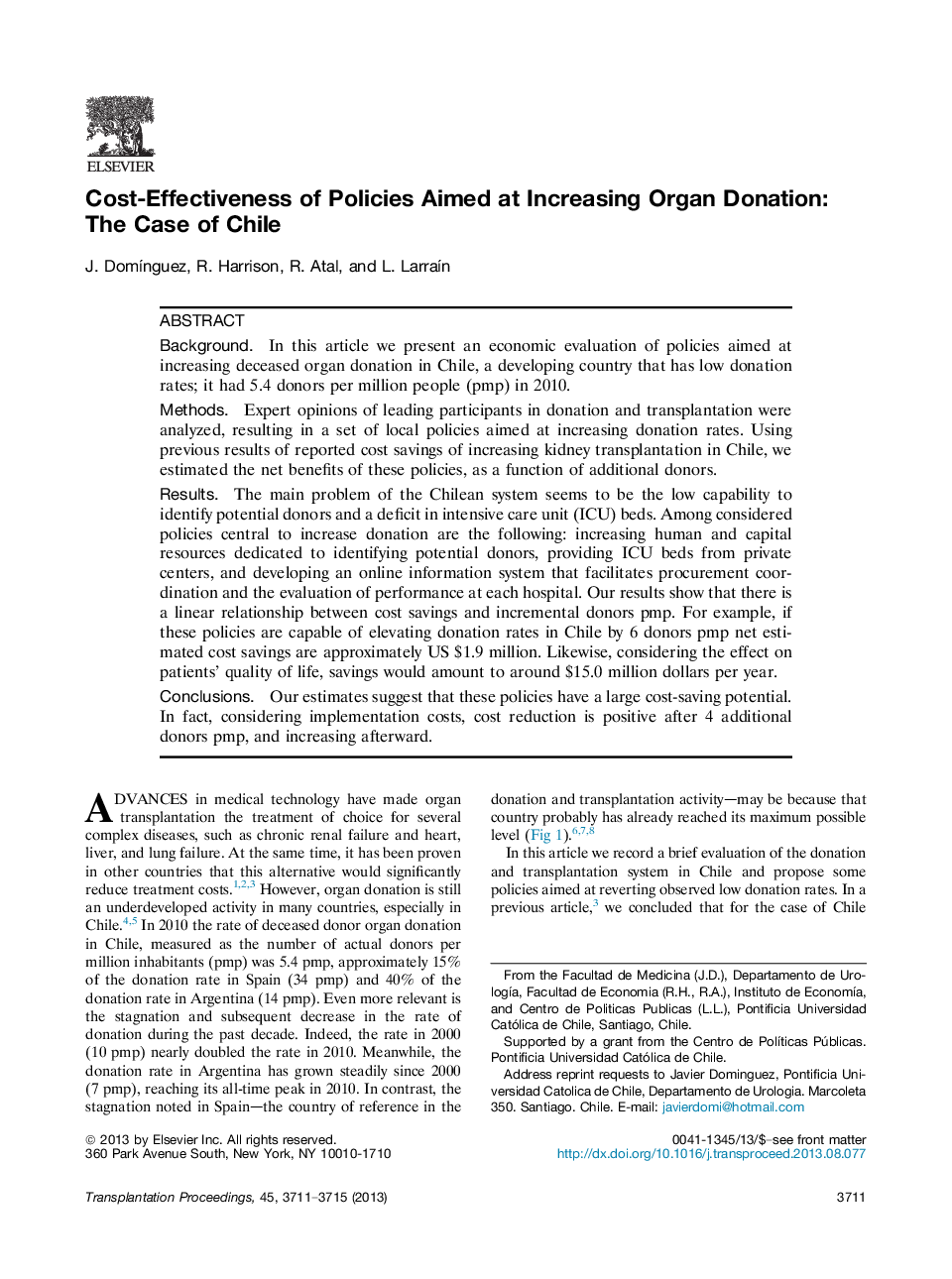| Article ID | Journal | Published Year | Pages | File Type |
|---|---|---|---|---|
| 4256572 | Transplantation Proceedings | 2013 | 5 Pages |
BackgroundIn this article we present an economic evaluation of policies aimed at increasing deceased organ donation in Chile, a developing country that has low donation rates; it had 5.4 donors per million people (pmp) in 2010.MethodsExpert opinions of leading participants in donation and transplantation were analyzed, resulting in a set of local policies aimed at increasing donation rates. Using previous results of reported cost savings of increasing kidney transplantation in Chile, we estimated the net benefits of these policies, as a function of additional donors.ResultsThe main problem of the Chilean system seems to be the low capability to identify potential donors and a deficit in intensive care unit (ICU) beds. Among considered policies central to increase donation are the following: increasing human and capital resources dedicated to identifying potential donors, providing ICU beds from private centers, and developing an online information system that facilitates procurement coordination and the evaluation of performance at each hospital. Our results show that there is a linear relationship between cost savings and incremental donors pmp. For example, if these policies are capable of elevating donation rates in Chile by 6 donors pmp net estimated cost savings are approximately US $1.9 million. Likewise, considering the effect on patients' quality of life, savings would amount to around $15.0 million dollars per year.ConclusionsOur estimates suggest that these policies have a large cost-saving potential. In fact, considering implementation costs, cost reduction is positive after 4 additional donors pmp, and increasing afterward.
